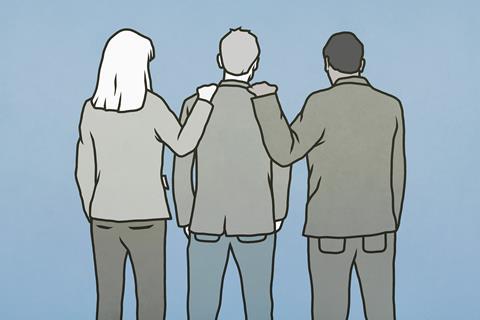Looking after your mental health and well-being is essential, but looking out for each other is just as important
Writing for the editorial for each print issue of Education in Chemistry, it’s always tempting to focus on a particular event in the teaching calendar.At this time of year, that means exams, transition or mental health. That’s a bit obvious, and we try not to do the obvious, simply because it can be lazy. Then again, the obvious thing can be the right thing. That’s rather a long-winded justification for writing about mental health and well-being.
Writing for this first page in the magazine, it’s always tempting to focus on a particular event in the teaching calendar. For the May issue, that means exams, transition or mental health. That’s a bit obvious, and we try not to do the obvious, simply because it can be lazy. Then again, the obvious thing can be the right thing. That’s rather a long-winded justification for writing about mental health and well-being.

The UK’s Mental health awareness week is 9–15 May. Rather than devote just a week to mental health, EiC is focusing on teachers’ well-being all year, starting with this issue. Because surely it’s integral to teachers staying in the profession.
Arm in arm
We’ve all read discussions about whether teachers are more stressed or burned out than other professions. Indeed, John Jerrim, professor of education and social studies at UCL Institute of Education, highlighted some interesting research into this area at the 2022 FFT Education Datalab Research Conference.
That’s rather beside the point though. Because comparing stress levels across professions does nothing to help teachers stressed about their here and now. For that we need to think and work on individual levels, teacher to teacher, and on bigger scales, as departments, as schools and associations. Which is why initiatives such as the ASE’s Teacher SOS and RISE are so important. It’s also why Teach Chemistry is launching its Well-being toolkit for science leads in secondary schools.
My old bandmaster – ex-RAF and very proper – always told his bunch of unruly teenage charges we were only as good as the weakest player (and by weakest he meant the one that practised the least). And that attitude works in most aspects of life. Where mental health and well-being at work are concerned, it’s about mutual support, so practise checking that your colleagues and fellow staffroom dwellers are okay. Whether you’re in the classroom or an editorial office, looking out for each other and standing together are surely the least we can do.









No comments yet